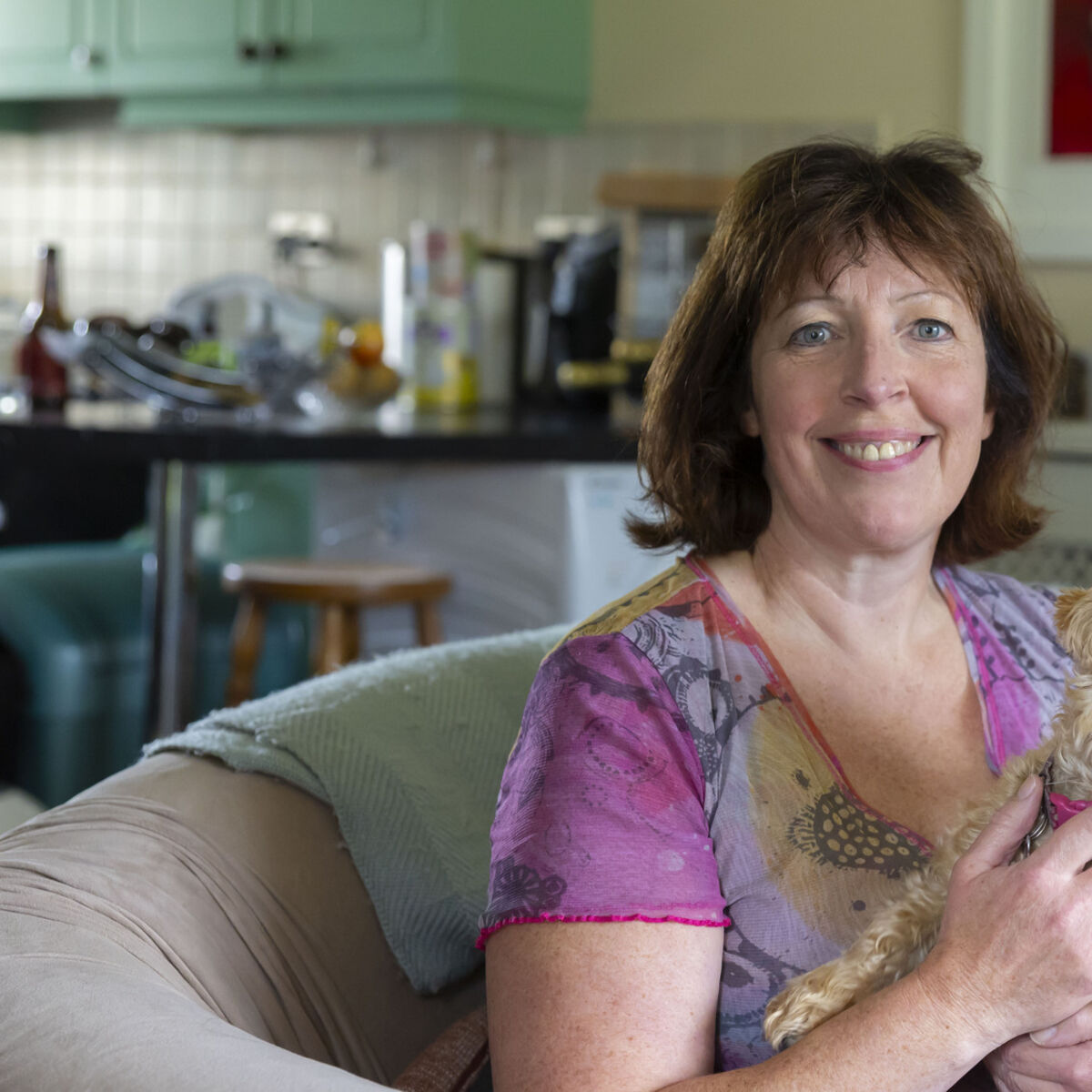By Arlene Harris,Irishexaminer.com
Copyright irishexaminer

However, when she arrived at the hospital expecting a repeat cervical screening test, she was told that she had to undergo a Letz procedure (a treatment used to remove abnormal cervical cells and prevent cervical cancer).
“I was totally unprepared for this, and when they produced a big needle and said that they needed to do some slicing and cauterising, I was horrified,” she says. “But I got over it, and a few months later, I had a cone biopsy done. There wasn’t any talk about cancer at that stage, but when the results came back, I was told that I needed to have a hysterectomy because they had found cancer.”
Aged 38 at the time, she was devastated by the news, as she had planned on having children. “I asked them if I could delay surgery until I had become a mother, but they said that if they allowed this to happen, we would then be having a very different conversation, as the cancer was already quite advanced.
“It was the first time that I really understood what the word surreal meant. I had been told something totally life-changing, and it was like having an out-of-body experience.”
Mental toll
Culliton, who lives in Waterford with her husband Bobby, underwent the necessary surgery and subsequent treatment. But while her physical health returned soon after her ordeal, the mental toll was much more debilitating.
“Dealing with the consequences of not being able to have children was absolutely devastating,” she says. “It took many years to get past this, and it not only impacted me, but also my partner. And so too did the financial impact of being left with surrogacy as our only chance to have children.”
She later found help through counselling, which she says “pulled me through”.
Five years after her treatment was finished, in 2020, Culliton, together with her husband, decided that they would go down the route of surrogacy. Their attempts were thwarted by covid and other external factors but finally their prayers were answered and today they are parents to two boys, Oisín and Donncha, aged one and two.
While the children are the greatest gift her husband and she “could have imagined”, she wants to ensure that others don’t have to go through the years of heartache she endured.
As World GO (Gynaecological Oncology) Day takes place on September 20, she is urging other women to ensure they avail of all testing on offer, encourage their teenagers to take the HPV vaccine and, if they have any concerns at all, to seek medical advice.
“The message I want to get out is to make sure to have your routine cervical screening and if you are eligible for a vaccine, take it,” she says. “Also, watch your symptoms, know your body, and don’t expect someone else to keep track of it for you. You might go to the doctor for a checkup, but they only know what you’re telling them. We’ve all got this [worry] about bothering the doctor with what we think are minor symptoms, but what you think is insignificant may be the one thing that makes them decide to investigate further.”
She says she would advise other women undergoing treatment for cervical cancer “not to lose hope” and to spread the word about World GO day and the advances in medical science, which are helping to save lives every day.
“I would say to other women who have just been diagnosed and are facing something like I went through, to concentrate on getting well, take all the support offered and know that there is light at the end of the tunnel.”
Now aged 50, she is determined to focus on the positives, even though she has “a lot of internal scarring and pain” as a result of her surgery, which restricts he activities, which she has learned to manage.
“The reality is, I would not be here today had I not been part of the cervical screening process. I am thrilled to hear about the elimination of cervical cancer through the HPV vaccine and would strongly recommend that all parents get their children vaccinated. Imagine that we could save another [woman] experiencing what I have and am going through – that is an amazing advancement.”
Raising awareness
Prof Nóirín Russell, CervicalCheck clinical director, says that great strides have been made in raising awareness for cervical cancer.
“Vicky Phelan is one of many women who, in recent years, have played an important role in bringing women’s health to the forefront of national conversation,” she says. ”Their voices have encouraged women to attend cervical screening and to speak more openly about women’s health. By sharing their experiences, they have shown the value of listening to patients and acting on what they tell us.
“This public advocacy has strengthened awareness of cervical screening as a vital service and highlighted the importance of accessible, timely care for women undergoing cancer treatment.
“And in terms of HPV vaccination, Laura Brennan’s advocacy helped increase confidence in the HPV vaccine and encouraged many parents of young people to see vaccination as a vital step in protecting their child’s health.”
Culliton says that although she has had a tough few years, she is very grateful for her family, her health and her hope for the future.
“I have been through a lot in the past decade, but at the end of it, I’ve got our two beautiful boys, who are fantastic and utterly perfect in every way.”
Gynaecological cancer — the facts
More than 1,400 gynaecological cancers are diagnosed annually in Ireland, representing over 12% of female cancers.
n Cervical cancer is almost always caused (nine out of 10 cases) by high-risk strains of the human papillomavirus (HPV). While not all HPV infections lead to cancer, persistent infection with high-risk types can cause cell changes that develop into cervical cancer over ten to 15 years.
n Smoking increases a woman’s risk of developing cervical cancer.
n The HPV Vaccine helps reduce the risk of cervical cancer developing.
For those who didn’t have the opportunity to have the HPV vaccine, routine cervical screening is vital, as the risk of developing cervical cancer is 10 times higher for women who have never had cervical screening.
n Common signs for cervical cancer include persistent, unexplained vaginal bleeding or discharge, especially between periods or after sex.
n Pelvic or back pain is less common for cervical cancer, but it can be a symptom of other gynaecological issues.
If you have any concerns, seek medical advice.
For more information, visit www.hse.ie, cancer.ie, and mariekeating.ie.



